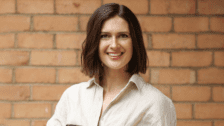The OG investment researcher: Rob da Silva on gorillas, conflicts and what advisers really want
Like many investment managers Rob da Silva found himself at a bit of a loose end in 2008, when the Global Financial Crisis wreaked havoc on markets and inhibited the aspirations of financial institutions.
At the time da Silva had been working for US capital markets giant Principal Financial Group, helping to expand their fixed income offering as they set out to emulate the growth of PIMCO. The role gave him an eye-opening view to a lot of products that weren’t really being offered at scale in Australia, such as leveraged loans and mortgage-backed securities. “It was a fantastic learning experience in the funds management world,” he says, and a perfect extension of his earlier roles at Prudential PLC and Morgan, Grenfell & Co. in the UK.
And then it all fell apart. “The GFC delivered a big hit to the financial world,” he tells The Inside Adviser. “Insurance companies, financial companies, they all got slaughtered and hunkered down, made roles redundant. It reversed the global ambitions of those companies for quite a while.”
In the wash-up, da Silva – who started his career in retail management, running supermarkets – decided to cast his net wider, beyond the traditional funds management sector.
“It wasn’t a time when the roads were paved with gold,” he recalls. “In the depths of the GFC, roles weren’t dropping into your lap, so I figured I should broaden my horizons and the opportunity to join the research arm of Van Eyk in 2012 came out of that. It looked intellectually interesting and it was in my wheelhouse because I knew how funds management companies work from the inside out.”
Yet again, disaster struck soon after in 2014 when Van Eyk’s investment division suffered a dizzying corporate collapse in the wake of rogue investing by manager Mark Thomas, who was permanently banned from operating by ASIC and sentenced to prison in 2022.
Gorillas in the room
Despite the drama, da Silva loved the research field. He connected with SQM Research, which was then focussed on founder Louis Christopher’s property expertise but needed someone to expand into the equities space and other sectors. After finishing up there six months ago, the now dyed-in-the-wool veteran researcher recently picked up another expansionary role, this time heading up Research IP’s team as it delves into the Australian market, leveraging its strong position in the New Zealand research space.
Much like the investment platform arena, the research market has become a crowded one, with large incumbent research groups like Morningstar, Zenith and Lonsec being joined by a host of smaller challengers. But it’s also one ripe for disruption in key areas.
“If you look at the space today there’s a handful of monoliths and they’re the gorillas in the room, but outside of that there’s a big tail and we’re part of it,” he says. “There’s room to bring competitive tension, when you have only two or three big players you tend to find areas that aren’t customer centric, or have elevated pricing.”
Knowing what will separate the winners from the losers in the increasingly contested space is “the $64,000 question”, he says. While the bigger research groups have expanded into managing their own funds and offering model portfolios designed to fit snugly onto investment platforms, da Silva doesn’t believe this guarantees success.
“Success in my mind is about producing quality reports and information that advisers and strategists can use to understand how a manager operates,” he says. “Satisfy that need in an efficient, palatable way; those are the fundamental building blocks of a research house, together with being flexible and responsive to stakeholders, especially licensees and advisers. You’ve got to seek feedback, you don’t just foist yourself on the industry.”
Managing conflicts
The researcher is keen to not only disrupt the sector, but address one of the most vexing issues that pervade the industry – the perception that having investment management firms paying for fund ratings is too inherently conflicted to be a valid marking system.
“It’s a frustration because it implies that there’s irresistible untoward forces working against people in research houses,” he says. “People are genuinely trying to add value.”
Conflicts exist, he says, as they do in most industries, but that doesn’t mean transactions are necessarily being driven by nefarious activity.
“Conflicts are everywhere,” he says, citing the medical field as an example. “It’s not about getting rid of them entirely, it’s about managing them with efficiency and transparency – something we focus on very strongly. The automatic assumption that conflicts always brings problems is not a reasonable one. Trying to eliminate all conflicts is noble in theory, but is a fundamentalist approach and not helpful in the long run.”











